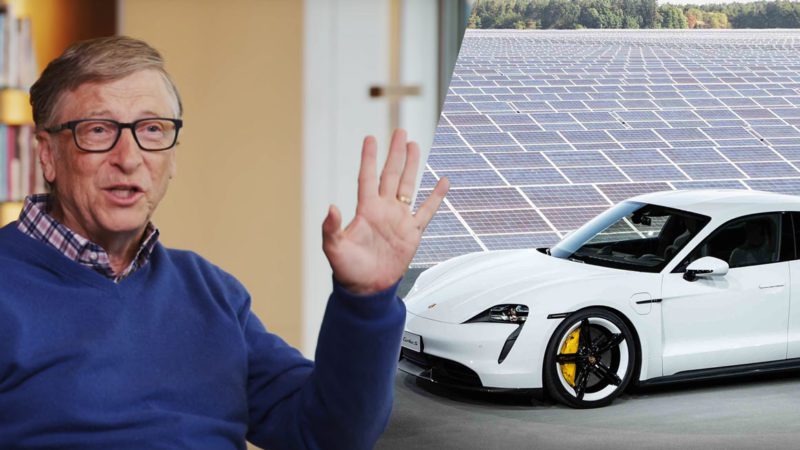Both Bill Gates and Elon Musk have made their fortunes bringing groundbreaking technology to the world, but recent comments made by Gates on Friday about electric cars has drawn savage criticism from Musk.
Musk tweeted on Tuesday morning (Australian time) after Gates’ interview with well-known US technology podcaster Marques Brownlee was published, saying: “My conversations with Gates have been underwhelming tbh.”
From one successful tech (yes, Tesla cars are a tech industry) entrepreneur to another, it seems pretty harsh.
My conversations with Gates have been underwhelming tbh
— Elon Musk (@elonmusk) February 18, 2020
To put the interview in perspective, Gates was discussing the potential of electric cars to combat the damaging effects of climate change with Brownlee.
Gates said, “Passenger cars is actually one of the most hopeful [sectors]” when it comes to combatting greenhouse gases to reduce the effects of climate change.
“Certainly Tesla, if you had to name one company that helped drive that, it’s them,” he said.
But Gates, who recently purchased an electric Porsche Taycan, also said he wasn’t that impressed by the range of electric cars.
“I’ve got to say — it’s a premium priced car — it is very, very cool. That’s my first electric car and I’m enjoying it a lot,” he said.
Asked if he thought there was anything that needed improving, Gates said, “I have to say … the range – you know, if you want to go a long distance, the pervasiveness of recharging, the time to recharge compared to filling up.”
Could it be that Gates is underwhelmed by the range of all electric cars, or simply that of his Taycan?
And is Musk’s criticism based on the fact Gates bought a Porsche, not a Tesla?
We’ve already seen Musk challenge Porsche after the release of the Taycan in September 2019 accompanied by a “four door electric sports car” lap record at Germany’s Nürburgring.
Tesla followed up by testing out its new tri-motor drivetrain at the same track in a “souped up” Model S, eventually beating the Taycan’s record in an unofficially timed lap.
But when it comes to driving range, it’s obviously not true that this is necessarily a problem for electric cars – although it can be for some (let’s set aside the fact that most of the time people drive less than 50km a day).
While Musk recently announced that the Tesla Model S driving range was extended to 390 miles (627km) driving range, the Taycan has faced criticism about its power-hungry drivetrain resulting in a disappointing 201 miles (323km) rating from the EPA.
It’s also hard to understand Gates’ criticism of the time it takes to recharge an electric car – after all, the Taycan is currently the only production electric car on the planet that can technically charge in just 14 minutes at the full 350kW rate of DC fast chargers.
Porsche did however end up reducing at the Taycan’s launch its max charge rate 250kW (it says it will enable 350kW charging in 2021) – the same top rate as can be achieved at Tesla’s new V3 Superchargers.

Bridie Schmidt is associate editor for The Driven, sister site of Renew Economy. She has been writing about electric vehicles since 2018, and has a keen interest in the role that zero-emissions transport has to play in sustainability. She has participated in podcasts such as Download This Show with Marc Fennell and Shirtloads of Science with Karl Kruszelnicki and is co-organiser of the Northern Rivers Electric Vehicle Forum. Bridie also owns a Tesla Model Y and has it available for hire on evee.com.au.

